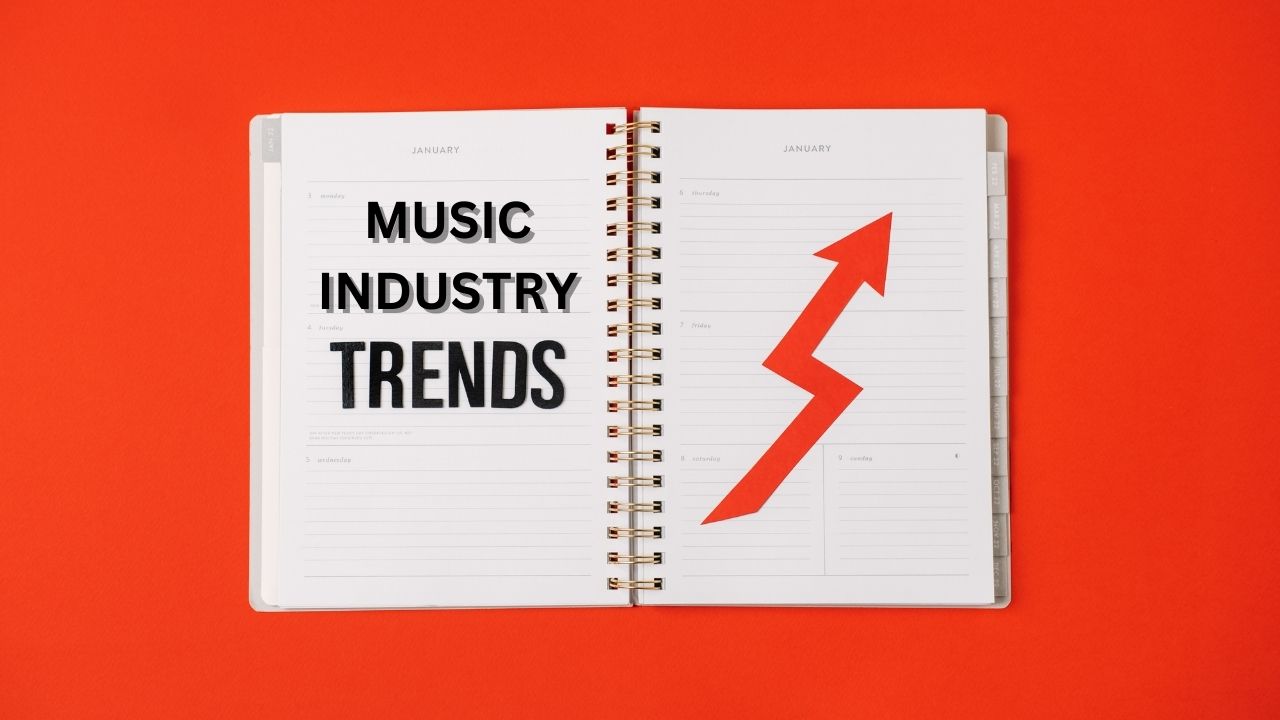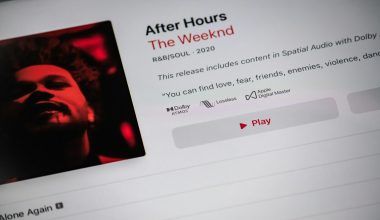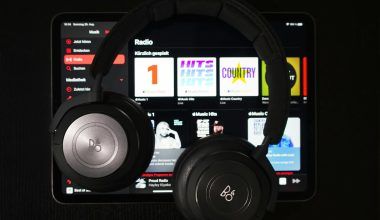The music industry is constantly evolving, driven by technological advancements, changes in consumer behavior, and shifts in cultural trends. Staying updated with the latest music industry trends is essential for artists, producers, and all stakeholders in the music business. In this blog, we’ll explore the most significant music industry trends shaping the landscape today.
The Rise of Streaming Services
One of the most impactful music industry trends in recent years is the dominance of streaming services. Platforms like Spotify, Apple Music, and Amazon Music have revolutionized the way people consume music. These services offer vast libraries of songs accessible at the touch of a button, making it easier than ever for listeners to discover new music.
Key Points:
- Streaming accounts for over 80% of music industry revenue.
- Playlists curated by algorithms and users have become a crucial discovery tool.
- Artists earn revenue through streaming royalties, which has shifted the focus from album sales to streaming numbers.
Streaming services have democratized music access. Listeners now have access to millions of songs without the need to purchase individual albums or tracks. This has lowered the barriers for new artists to enter the industry and reach a global audience. However, this trend also brings challenges, such as lower per-stream payouts compared to traditional album sales. Artists and industry professionals need to navigate this landscape by leveraging streaming platforms to their advantage, using them not just for revenue but also as powerful marketing tools.
Independent Artists and DIY Culture
Another significant music industry trend is the rise of independent artists and the DIY (Do It Yourself) culture. With tools like digital distribution services, social media, and affordable home recording technology, artists no longer need major labels to succeed.
Key Points:
- Platforms like Deliver My Tune enable artists to distribute their music globally.
- Social media platforms like Instagram, TikTok, and YouTube are essential for promotion and fan engagement.
- Crowdfunding and direct fan support through platforms like Patreon have become viable funding options.
The empowerment of independent artists has reshaped the music industry. Artists now have greater control over their creative and financial destinies. They can release music on their schedules, maintain ownership of their masters, and directly engage with their fanbase. This trend has also led to a more diverse music landscape, where niche genres and unconventional styles can find their audiences without the gatekeeping traditionally imposed by major labels. The DIY approach encourages innovation and authenticity, allowing artists to build loyal followings based on genuine connections with their fans.
Virtual Concerts and Live Streaming
The COVID-19 pandemic accelerated the adoption of virtual concerts and live streaming, a trend that shows no sign of slowing down. Artists can reach global audiences from the comfort of their homes, and fans can enjoy live performances without geographical constraints.
Key Points:
- Platforms like Twitch and YouTube Live have become popular for streaming concerts.
- Virtual reality (VR) concerts are emerging, offering immersive experiences.
- Monetization through virtual ticket sales, donations, and exclusive content.
Virtual concerts have opened new revenue streams for artists, especially during times when physical tours are not feasible. They provide opportunities for unique and interactive experiences, such as Q&A sessions, virtual meet-and-greets, and behind-the-scenes content. Artists can perform for fans worldwide simultaneously, breaking down geographical barriers. This trend also allows for more frequent performances and creative set designs that might not be possible in traditional live settings. As technology advances, the quality and interactivity of virtual concerts will continue to improve, making them a staple in the music industry.
The Role of Artificial Intelligence
Artificial Intelligence (AI) is becoming increasingly influential in the music industry trends. From AI-generated music to advanced data analytics for understanding listener behavior, AI is a key player in shaping the future of music.
Key Points:
- AI tools for mastering music, such as Deliver My Tune’s AI Mastering Service, provide professional-quality sound.
- AI-driven recommendations on streaming platforms help listeners discover new music.
- AI in music production can assist in creating unique compositions and sounds.
AI’s impact on the music industry is multifaceted. In addition to enhancing music production and discovery, AI can analyze vast amounts of data to provide insights into market trends and audience preferences. This helps artists and labels make informed decisions about marketing strategies, tour planning, and content creation. AI-generated music is also pushing creative boundaries, allowing for the exploration of new sounds and compositions that might not be possible through traditional means. While AI cannot replace human creativity, it serves as a powerful tool to augment and inspire artistic endeavors.
The Growth of Short-Form Video Content
Short-form video content, particularly on platforms like Instagram, has become a crucial trend in the music industry. These platforms have the power to make songs go viral, boosting streams and chart performance.
Key Points:
- Instagram algorithm promotes viral challenges and trends that incorporate specific songs.
- Artists leverage Instagram to create engaging content that resonates with younger audiences.
- Short-form videos are used for marketing and promoting new releases.
The influence of short-form video content on the music industry cannot be overstated. Instagram in particular, has been instrumental in reviving old songs and propelling new tracks to the top of the charts. Artists can use these platforms to showcase their personalities, engage with fans, and create memorable marketing campaigns. The ability to go viral overnight has democratized music promotion, allowing unknown artists to gain massive exposure quickly. This trend emphasizes the importance of visual content in music marketing and the need for artists to be versatile in their promotional strategies.
Sustainability and Ethical Practices
There is a growing awareness and demand for sustainability and ethical practices within the music industry trends. Fans and artists alike are advocating for more environmentally friendly and socially responsible practices.
Key Points:
- Vinyl records and CDs are being produced using eco-friendly materials.
- Music festivals and tours are adopting greener practices, such as reducing plastic waste and carbon emissions.
- Ethical considerations in music production, including fair wages and working conditions, are gaining attention.
The push for sustainability in the music industry reflects broader societal trends towards environmental consciousness. Artists and fans are increasingly concerned about the environmental impact of music production, distribution, and live events. This has led to innovations in packaging, energy-efficient tour planning, and partnerships with environmental organizations. Additionally, ethical practices in the music industry ensure fair treatment and compensation for all individuals involved in music production, from session musicians to crew members. By prioritizing sustainability and ethics, the music industry can contribute to a more equitable and environmentally friendly world.
Blockchain and NFTs
Blockchain technology and Non-Fungible Tokens (NFTs) are emerging music industry trends that offer new ways for artists to monetize their work and engage with fans.
Key Points:
- NFTs allow artists to sell unique digital items, such as exclusive songs, artwork, and concert tickets.
- Blockchain can ensure transparent royalty distribution and copyright management.
- Fans can invest in NFTs, creating a new revenue stream for artists.
The integration of blockchain and NFTs into the music industry represents a significant shift in how music and related content are bought, sold, and owned. NFTs provide a way for artists to create scarcity and exclusivity in the digital realm, offering fans unique experiences and collectibles. Blockchain technology ensures that transactions are secure, transparent, and immutable, addressing long-standing issues of royalty distribution and copyright infringement. This trend empowers artists to retain more control over their work and opens up new possibilities for fan engagement and revenue generation.
Globalization of Music
The globalization of music has led to a more interconnected world where genres blend, and international collaborations thrive. Artists from different countries and cultures are working together, creating diverse and rich musical landscapes.
Key Points:
- Latin music, K-pop, and Afrobeat have gained significant global popularity.
- Collaboration tools and platforms facilitate international music production.
- Global streaming services help artists reach audiences worldwide.
Globalization has broken down cultural barriers, allowing music to be a universal language that transcends borders. Artists can collaborate with peers from different countries, bringing unique influences and sounds to their music. This has led to the rise of genres that blend traditional and contemporary elements from various cultures. Streaming services play a crucial role in this trend by making music from around the world accessible to anyone with an internet connection. The result is a more vibrant and diverse music scene where listeners can discover and appreciate a wide range of musical styles and traditions.
Mental Health Awareness
Mental health awareness is becoming one of the crucial music industry trends. The pressures of fame, constant touring, and social media scrutiny have highlighted the need for mental health support for artists.
Key Points:
- Initiatives and organizations are providing mental health resources and support for musicians.
- Open discussions about mental health challenges are becoming more common.
- Fans and the industry are advocating for better working conditions and mental health care.
The music industry is increasingly recognizing the importance of mental health and the unique challenges faced by artists. The intense pressure to succeed, coupled with the demands of touring and public scrutiny, can take a significant toll on mental well-being. To address this, various organizations and initiatives offer mental health support tailored to the needs of musicians. Open conversations about mental health help destigmatize these issues and encourage artists to seek help when needed. By prioritizing mental health, the music industry can foster a healthier and more sustainable environment for its artists.
Social media continues to be a driving force in the music industry. Platforms like Instagram, Twitter, and Facebook are essential for artists to connect with fans, promote their music, and build their brands.
Key Points:
- Social media platforms are vital for real-time interaction with fans.
- Artists use social media to announce new releases, tour dates, and engage in direct communication with their audience.
- Social media analytics provide valuable insights into audience demographics and preferences.
The power of social media in the music industry lies in its ability to create direct and immediate connections between artists and their fans. Through regular updates, live streams, and interactive content, artists can build a loyal fanbase and maintain a strong online presence. Social media also serves as a platform for fan engagement, allowing artists to receive instant feedback and foster a sense of community. Additionally, social media analytics provide artists with valuable data on their audience’s preferences, enabling them to tailor their content and marketing strategies effectively. These music industry trends emphasizes the importance of digital literacy and social media savvy for modern musicians.
The Evolution of Music Production Technology
Advancements in music production technology have revolutionized the way music is created, recorded, and produced. From sophisticated software to state-of-the-art hardware, these innovations have made high-quality music production more accessible to artists at all levels.
Key Points:
- Digital Audio Workstations (DAWs) like Ableton Live, Logic Pro, and FL Studio offer powerful tools for music production.
- Affordable home studio setups allow artists to produce professional-quality music without the need for expensive studio time.
- Plugins and virtual instruments provide a vast array of sounds and effects that enhance creativity and production quality.
The evolution of music production technology has democratized the creative process. Artists can now produce, mix, and master their tracks from their bedrooms, using tools that were once only available in professional studios. This trend has lowered the barrier to entry for aspiring musicians and fostered a new wave of independent producers. The availability of high-quality plugins and virtual instruments has expanded the sonic possibilities, allowing artists to experiment with different genres and styles. As technology continues to advance, the music production process will become even more streamlined and innovative.
The Influence of Music Analytics
Music analytics is also one of the critical music industry trends shaping the music industry. With the rise of streaming services and social media, vast amounts of data are generated daily. Analyzing this data helps artists and industry professionals make informed decisions.
Key Points:
- Analytics tools provide insights into listener demographics, engagement, and preferences.
- Artists can track the performance of their releases in real-time.
- Data-driven decisions enhance marketing strategies and audience targeting.
The role of music analytics extends beyond mere numbers; it provides actionable insights that can significantly impact an artist’s career. By understanding who their listeners are, where they are located, and what they like, artists can tailor their promotional efforts to maximize reach and engagement. Real-time tracking of release performance allows for quick adjustments in marketing strategies. For example, if a particular song is performing well in a specific region, artists can focus their tour efforts or promotional activities in that area. This trend underscores the importance of data literacy for modern musicians and industry professionals.
The Importance of Branding and Image
In the digital age, an artist’s brand and image are as important as their music. The way artists present themselves online and offline can significantly impact their success and public perception.
Key Points:
- A strong, consistent brand helps artists stand out in a crowded market.
- Visual identity, including album artwork, social media presence, and merchandise, plays a crucial role in branding.
- Personal storytelling and authenticity resonate with fans.
Branding and image have always been one of the most important music industry trends, but they have taken on new significance in the digital era. An artist’s brand encompasses their visual identity, public persona, and the narrative they share with their audience. Consistent branding helps artists establish a recognizable and memorable presence, making it easier for fans to connect with them. Visual elements like album covers, music videos, and social media profiles contribute to this identity. Moreover, personal storytelling and authenticity are highly valued by modern audiences. Artists who share their journey, challenges, and triumphs can build a loyal and engaged fanbase.
Conclusion
Staying abreast of music industry trends is essential for anyone involved in the music business. From the rise of streaming services and AI to the impact of short-form video content and NFTs, these trends are shaping the future of music. Embracing these changes and adapting to new technologies and practices will ensure that artists and industry professionals remain relevant and successful in this dynamic landscape.
For further reading, explore these related articles:
- Understanding View Velocity and Its Impact on YouTube Trends
- The Future of Music Royalties: Trends and Predictions
- Future Trends in Music Distribution on Spotify
For additional resources on music marketing and distribution, visit Deliver My Tune.






